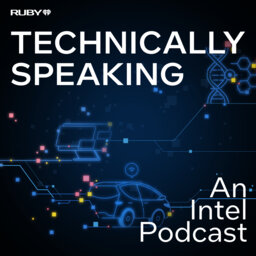Season 1 Episode 7: AI Education Programs with Intel
AI is a rapidly evolving space, creating a need for data scientists and developers. This also creates the importance for more specified education programs to prepare the upcoming workforce for these emerging roles. Habib Matar, a former Intel supervisor and current professor at Chandler-Gilbert Community College, discusses Intel's AI for Workforce program and why AI education should be implemented in non-traditional education programs. We’ll unpack how AI revolutionized learning and created more gateways for STEM careers.
Learn more about how Intel is leading the charge in the AI Revolution at Intel.com/AIperformance
 Technically Speaking: An Intel Podcast
Technically Speaking: An Intel Podcast


